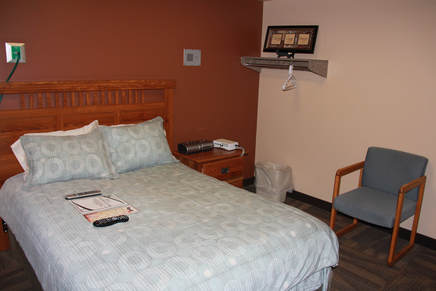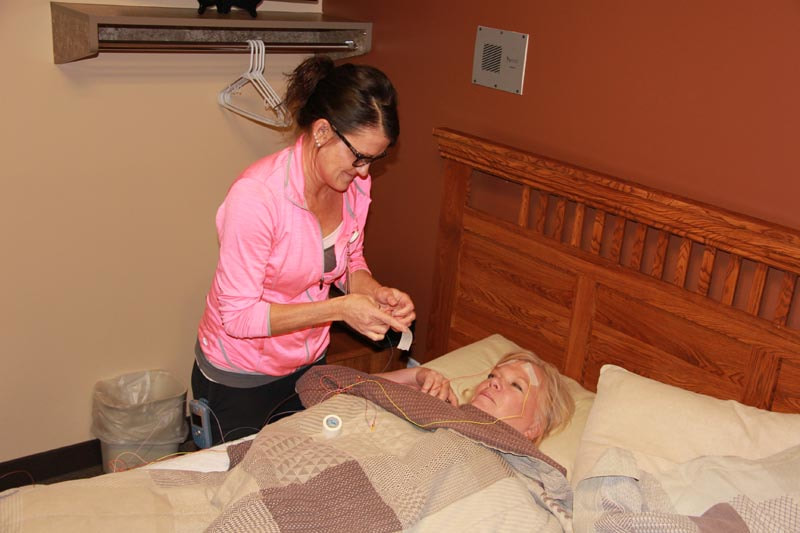|
Sleep apnea affects more than 12 million Americans, according to the National Institute of Health. Risk factors include being male, overweight, and over the age of 40, but sleep apnea can strike anyone at any age, even children.
People with untreated sleep apnea stop breathing repeatedly during their sleep, sometimes hundreds of times during the night and often for a minute or longer. With each apnea event, the brain briefly arouses people with sleep apnea in order for them to resume breathing. Consequently, sleep is extremely fragmented and of poor quality. The sleep center features two home-like rooms with overnight studies beginning at 8:30 p.m. Patients are connected with sensors which give a continual reading on sleeping patterns. Following the study, an appropriate course of treatment is recommended. Sleep Lab staff: Julie Sayer, CRT, handles responsibilities of the sleep lab with the assistance of the Respiratory Department. |
- Home
- About
- PROVIDERS
-
Services
- Advanced Wound Care
- Allergy Clinic
- Cardiopulmonary
- Imaging Services
- Laboratory Services
- Respiratory Therapy
- Diagnostic Sleep Center
- Surgical Services
- Hospital Services >
- Maternity Services
- Orthopedics
- Medical Clinics
- Nutrition & Diabetes
- Public Transportation
- Rehabilitation >
- Assisted Living
- Senior Life Solutions
- Social Services
- Wellness Center
- Careers
- Patient
- Contact Us
- Patient Family Advisory Council
- Visitor Guidelines
- Gift Shop
- Send a Smile
- Cornerstone Café
- The DAISY Award
- Heritage Plaza
- Community Resources
- Health Library
- E-newsletters
Privacy Policy
|




